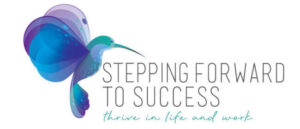As a new Provisionally Certified Teacher (PCT), your journey to becoming a fully-fledged early childhood education (ECE) teacher is just beginning. With your study over, now it is time to put your skills to the test while working towards Full Certification.
An important part of this journey will be your mentor teacher who is assigned to work with you and help to assess your teaching. Your mentor will be a fully certified and more experienced teacher (usually also working at your ECE centre).
You probably already know that having a mentor teacher is a requirement of your certification journey.
But there are many reasons why you should have a mentor early in your teaching career, beyond the simple fact that you have to! Let’s dive in and look at those reasons now.

Why You Need A Good Mentor During Your First Years Of Teaching
Why Is It So Important To Have A Mentor?
A good mentor helps you make sense of teaching in those early days when everything can seem overwhelming. They not only help with the practical aspects of teaching, but also help with your reflection. According to the Education Council, a mentor helps you to:
- become an accomplished and effective teacher who can improve the learning outcomes of diverse ākonga
- progressively demonstrate you meet Our Code, Our Standards
- be able to contribute fresh ideas and approaches that rejuvenate teaching workplaces
- build a strong foundation of self-reflection and ongoing professional learning
- enjoy teaching and be a positive member of the profession.
As you can see, they will be a key figure in your professional development throughout your certification journey, and beyond!
What A Good Mentor Will Do
Of course, an important part of your mentor’s work is to ensure you are developing your teaching practices and demonstrating the skills needed to be an effective ECE teacher. As part of that, they will give you feedback on your teaching through regular meetings so you can assess your progress. They will also assist you with your inquiry focus that forms an integral part of your certification.
But, beyond all that practical stuff, they have a much greater power. Your mentor will simply help you find your feet. Even if you have been at the ECE centre during your studies, working there as a PCT is a very different experience.
It can be helpful to have a mentor at the same centre as you as they will understand how the particular centre works and what the teaching approach is. However, it isn’t essential to have a mentor based at the centre you are working at. You can just as easily utilise the skills of the external mentor as it is part of their responsibility to pick up the centre’s ways.
Your mentor is also your advocate within your centre. For example, they can help facilitate learning opportunities with other teachers and ensure you have adequate resources to complete the required parts of your certification while fulfilling your teaching role.
The Extra Stuff They Do
Beyond all of the practical and settling support, a high-quality mentor will challenge you to reflect on your teaching practices, engaging in evidence-based conversations about your work. Done well, these conversations will help you understand your current thinking and practices and also open new ideas.
Reflection should be a collaborative process. Your mentor is not necessarily there to tell you what to do or control the situation. Rather, they are there to encourage you to reflect on what has gone well or not gone so well and to develop strategies for the future. Throughout your mentorship, you’ll not only learn teaching skills, but wider skills like problem-solving and self-appraisal too.
By the end of your two years of mentoring you should feel more confident in dealing with all types of situations within an ECE Centre. You should also feel that you can contribute your own ideas to improve the teaching at any centre you work at.
In short, if you find a mentor that you can really connect with, they can inspire you to become a better teacher.
Make The Most Out Of Working With A Mentor
If you are beginning your journey to full certification, then planning and careful attention to your learning can make all the difference to what you get from your first two years in work. That includes finding the right mentor and setting up a good relationship with them from the start.
To help you, I’ve created the Roadmap to Certification. The Roadmap helps you chart your journey to certification in clear stages. It offers advice on each stage, including suggestions on when to start meeting with your mentor and the regular touch-points you need to have with them.
The Roadmap is backed by support from me and our private Facebook group where you can discuss your experiences and supplement your in-centre learning.
If you are unable to find a suitable mentor at your Centre or elsewhere, then I can also act as your mentor if you need my support.
Love the sound of the Roadmap? Then, check it out here.
Click here to read more about the Roadmap or click here to purchase the Roadmap to Certification ebook for Provisional Certified Teachers. Or if you are looking to get started on your professional Certification journey, the Kete Ako programme is a great starting point – check it out here.

